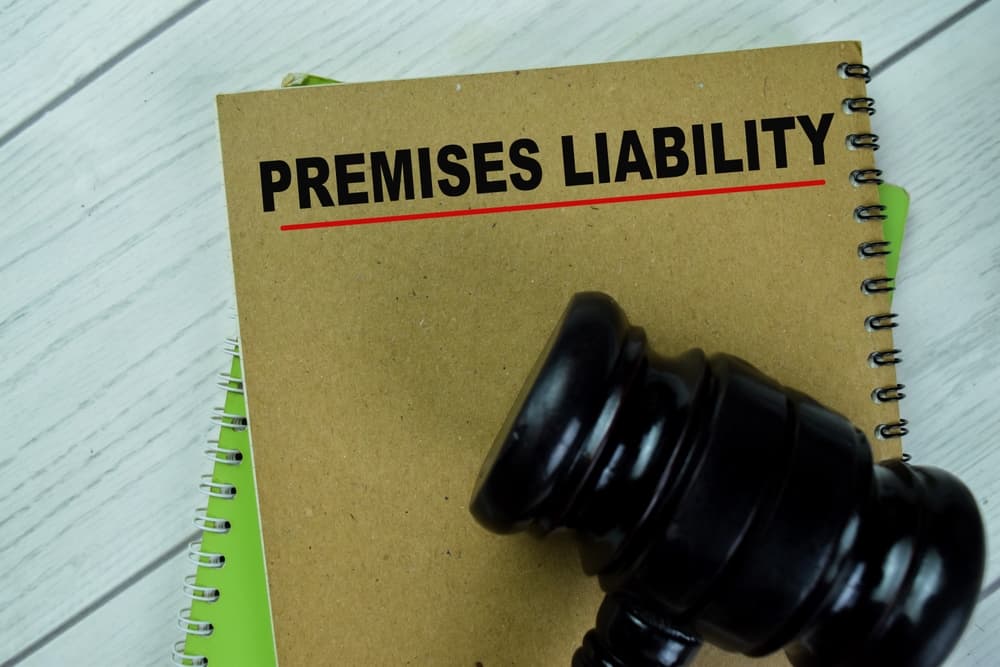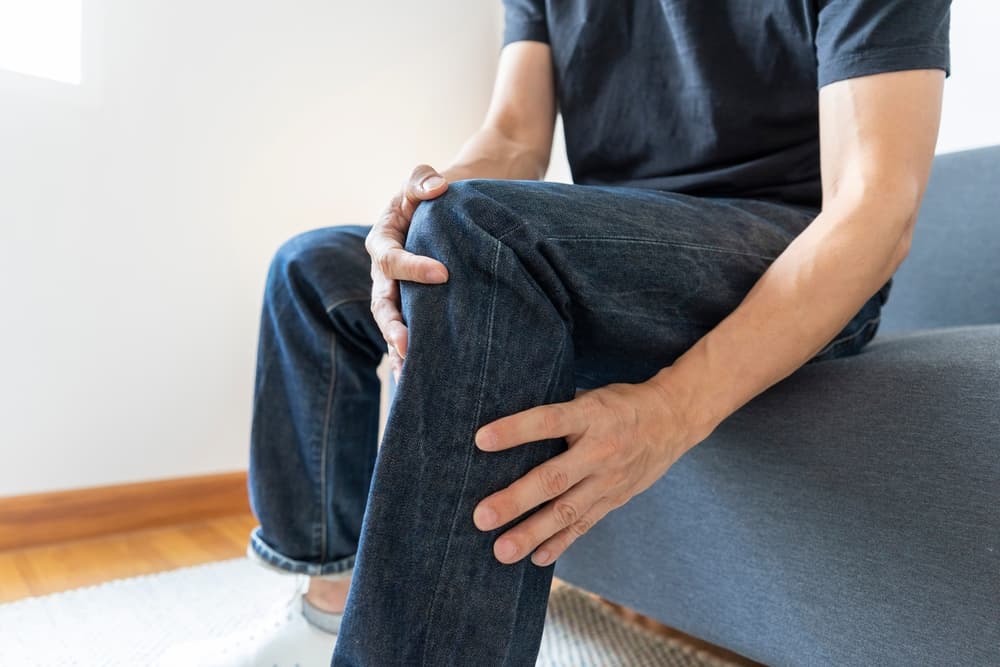Navigating the intricate landscape of personal injury law can be daunting, especially when it involves premises liability—a legal concept that deals with injuries occurring on someone else's property. It is a common misconception that if an injury occurs on someone else's property, that person or entity is automatically responsible for damages.
Determining liability after an accident on someone else's property requires analyzing a complex balance of factors. If you suffered an injury on someone else's property, a skilled Miami slip and fall accident lawyer can provide insight regarding liability for the incident and explain your right to pursue compensation.
Schedule a Free Initial Consultation Today!
Understanding Premises Liability
Premises liability laws govern personal injury claims arising from an injury on someone else’s property. This legal concept hinges on the principle that property owners, and in some cases, non-owner residents, are responsible for maintaining a safe environment for individuals on their property. If they fail to do so and someone suffers harm, they could be liable for the injuries.
Different Types of Premises Liability
Various scenarios can give rise to premises liability claims. While the most common form of premises liability is slip and fall cases, other examples include inadequate maintenance of the property, defective conditions on the premises, dog bites, and insufficient building security leading to injury or assault.
The applicability of premises liability depends on the circumstances surrounding the incident, and proving liability can be more complex in some scenarios than others.
Circumstances Under Which Property-Related Injuries May Occur
In the realm of premises liability, the specific circumstances under which an injury occurs can heavily influence the viability of a lawsuit. It's not only the nature of the accident that's accountable, but also the injured person's status.
We will explore the four main categories of individuals: trespassers, licensees, invitees, and child trespassers, and discuss how liability applies differently to each group.
Trespasser Injuries
A property owner does not usually owe a duty of care to a trespasser—someone who enters the property without permission.
Some exceptions may apply. If the property owner knows about routine trespassing, for example, and does nothing to prevent harm, they may need to pay for the resulting injuries. If the owner acts willfully to harm the trespasser, they may also assume liability.
Licensee Injuries
Licensees are individuals who enter a property for legal purposes; for example, a police officer entering the property to perform his duties or a mail carrier who must visit the property to deliver the mail.
In many cases, these individuals may need to enter the property without specific permission from the owner. The owner has a general duty of care to these visitors to ensure a safe experience.
Invitee Injuries
Invitees are individuals who visit a property as guests of the owner, such as business associates or store customers. Property owners owe the highest duty of care to invitees and must regularly inspect their property for hazards and either repair them or provide adequate warning. If an injury occurs due to a failure in these duties, the owner could be liable.
Child Trespasser Injuries
Children who trespass receive special consideration under the law. Even if a child enters a property without permission, the property owner may be liable if there is an attractive nuisance, such as a swimming pool, that could lure children onto the property and potentially cause harm. The owner must take reasonable measures to prevent such accidents.
Understanding these categories is crucial, as they play a significant role in determining whether you can successfully sue a property owner for an injury.
Factors That Determine if You Can Sue
The specific factors that give you a valid case to sue for an injury include duty of care, breach of duty, causation, and damages. You must prove these interrelated elements to establish liability in a premises liability lawsuit.
Duty of Care
The first factor to consider is whether the property owner had a duty of care towards the injured party. In legal terms, this means the owner has a responsibility to maintain a reasonably safe environment for people who are lawfully on their property.
The extent of this duty can vary depending on the status of the individual on the property. It may also depend on the property type and the purpose of the visit.
Breach of Duty
After establishing the property owner owed a duty of care, the next step is determining whether they breached that duty. A breach occurs if the property owner fails to meet the standard of care required, for instance, by not rectifying known hazards or not providing adequate warning about them.
Causation
Even if a breach of duty occurs, the plaintiff (the person suing) must prove causation—that is, the defendant's (property owner's) negligence directly led to their injury. This can often be the trickiest part of a premises liability case, as it requires the consideration of other factors, such as the personal actions of the plaintiff.
Damages
To successfully sue for a slip and fall, there must be actual damages. Damages are the legal term for a monetary remedy payable to a person who has suffered loss or harm due to another's negligence. This could include medical bills, lost income, pain and suffering, and other losses related to the injury.
After a potentially damaging incident, the plaintiff may want to file a claim despite the absence of tangible damage. If a flight of stairs collapsed just before you walked on them, for example, it might cause an immediate fear response, but the claim may look very different if the stairs collapsed while you were on them, leaving you with broken bones or a brain injury.
You may have the right to claim damages even if you did not suffer serious injury. If the event causes anxiety or post-traumatic stress disorder, for example, you may have the right to file a claim. A lawyer can lay out all the damages you sustained due to the event and the compensation you should expect.
The Role of Negligence in Premises Liability Cases
Negligence is critical to personal injury cases, including premises liability claims. It is the centerpiece for demonstrating liability and establishing a strong case. Negligence refers to the failure to take proper care in doing something.
In legal parlance, it has a more precise definition: a breach of the duty of care that directly results in injury to another person. For a plaintiff to succeed in a premises liability case, they must demonstrate that the property owner was negligent—meaning they failed to take reasonable care to ensure their property was safe—resulting in the plaintiff's injury.
Determining Negligence in Premises Liability Cases
Establishing negligence in a premises liability case requires proving four elements:
- The property owner owed a duty of care to the injured person.
- The property owner breached that duty of care.
- The breach directly resulted in injury or harm to the person.
- The injured person suffered damages as a result.
You must prove each element for the court to determine the property owner’s negligence. If an owner fails to fix a broken step despite knowing about it, for example, a lawyer can hold them negligent if a visitor trips on the step and breaks their leg.
What may seem like clear negligence to one person might not seem so to a court of law. This is why you need an experienced personal injury lawyer to offer legal advice and representation.
The Process of Filing a Premises Liability Lawsuit
Filing a premises liability lawsuit allows the victim of a premises liability accident to pursue compensation for the sustained damages resulting from the accident. The process starts when you contact a lawyer who can guide you through the claim process. A lawyer can explain your rights and protect your interests as they manage your case.
Gathering Evidence
The first step towards filing a premises liability lawsuit is gathering evidence. You will need to prove that the property owner's negligence led to your injury, so document everything related to your injury.
This can include taking pictures of the incident location and the contributing elements to your fall, noting the weather conditions if they were a factor, and retaining any clothing or footwear you wore during the accident. Keep track of medical examinations, treatments, and any other expenses related to your injury.
Filing the Lawsuit
If you and your attorney conclude that you have a valid claim, the next step is formally filing the lawsuit. This involves drafting and submitting a document, which you refer to as the complaint, to the court, which outlines your case against the defendant (in this case, the property owner).
The complaint describes the circumstances surrounding your injury, provides evidence of the defendant's negligence, and specifies the damages you seek.
Negotiating a Settlement
After the filing of the lawsuit, the negotiation process begins. This typically involves several stages, including disclosure (where each side shares their evidence), discovery (a period for investigating the facts of the case), settlement negotiations, and, if necessary, a trial.
Throughout this period, your attorney will advocate for your best interests to prove the defendant's negligence and secure a just settlement for your injuries.
Filing a premises liability lawsuit can be taxing and complex, making a skilled attorney crucial. They can collect evidence, file the lawsuit, and represent you in court.
The Role of Insurance in Premises Liability Cases
Insurance often plays a critical role in premises liability cases. Most property owners have insurance policies that offer protection against liability for accidents and injuries occurring on their property. Three key insurance policies apply in premises liability cases: homeowner, renter, and commercial property insurance.
Homeowner's Insurance
Homeowners insurance typically covers personal liability for injuries on a homeowner's property. If a guest slips and falls on a homeowner's icy front steps, for instance, the homeowner's insurance policy might cover the guest's medical expenses and any legal fees should the guest decide to sue.
Renter's Insurance
Like homeowner's insurance, renter's insurance can cover personal liability for injuries in a rented property. If a visitor, for example, trips over a loose carpet in a rented apartment and gets hurt, the renter's insurance policy may cover the resulting expenses.
Commercial Property Insurance
Commercial property insurance offers coverage for business properties. If a customer trips on a broken floor tile in a store and suffers an injury, the store's commercial property insurance might cover the customer's medical costs and potential legal fees.
Contact an Attorney To Discuss Your Premises Liability Claim

When you suffer injuries on someone else's property due to the property owner's negligence, you may deal with considerable financial and non-financial losses, including ongoing medical bills and pain and suffering.
A personal injury lawyer can provide essential guidance and support as you navigate the claim process. They can determine whether you have grounds for a claim and maximize your compensation. Contact a lawyer as soon after the incident as possible.

